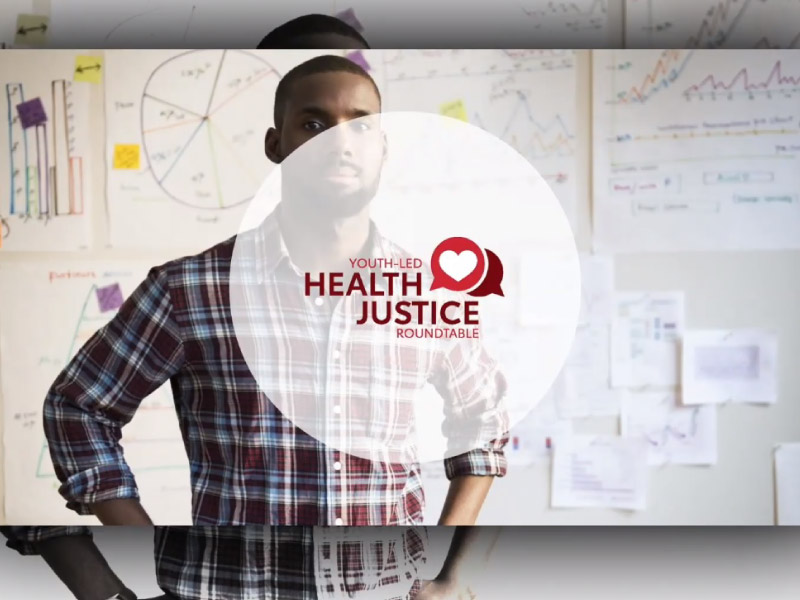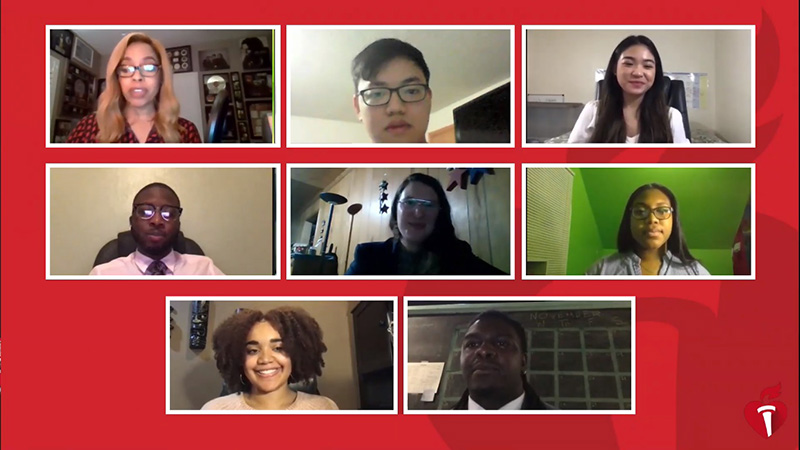Young scholars take on health justice
By Michael Merschel, American Heart Association News

"Health justice is important because it gives everyone a fighting chance at life. And nationality, ethnicity and race – none of that should determine whether you live or die."
University of Southern Indiana graduate student Jahmel Fowler was offering his personal views, but his words summed up the thinking of a panel of aspiring health care professionals who gathered to discuss health justice on a live webcast Wednesday night.
The roundtable featured students who are part of the American Heart Association's EmPOWERED to Serve and HBCU Scholars programs.

"We're here tonight because for far too long, structural barriers in society have led to a public health crisis that has taken a painful and unacceptable toll on the health and well-being of people of color in this country," said host Angela Watson Charles, an iHeartMedia executive and New Orleans radio personality also known as "Uptown Angela."
She noted that about 50 million people in the United States are at risk for heart disease and stroke because they lack basic needs such as healthy food, clean air, drinking water, quality education and safe housing. Research also shows life expectancy can differ by as much as 20 years for people living just 5 miles apart.
Lady Dorothy Elli, a student at the University of Arizona, said she witnessed such disparities growing up in the Philippines. COVID-19 has made such gaps clearer than ever in the United States, where people of color have borne the brunt of the pandemic.
"We work in the service industry," she said. "We are essential workers, so the schedule is not very flexible. ... We have to work – you have to put food on the table. And when we come home, we live with our extended family. And that increases the risk, if you live with more people."
Asja Woodard, a student at Atlanta's Spelman College, said she grew up as the daughter of a physician who worked with underserved communities, and most residents near her college are people of color who are struggling. So health injustices hit close to home.
"I see it in my family, and I see it in my own community," she said. But those same injustices are what drive her toward wanting to create a better future. "It's really what made me want to get my degree in medicine and then work in underserved communities. I want to be able to be a familiar face to my patients."
Dontrez Johnson Jr., a graduate of Tennessee State University who is applying to medical schools for next fall, said he was directly inspired by the health struggles of the people he grew up around. "You oftentimes will see people of color not trusting doctors that didn't look like them."
But Alana Barr, who attends Georgia Tech University, said she'd had plenty of experiences of the type that dissuade students like her from pursuing medical careers.
As a Black student who grew up in a white community in suburban Atlanta, she was taunted as being "Black on the outside, white on the inside." And when she would tell a counselor she wanted to go to Georgia Tech or another top school, the reply was always a skeptical: "Really? I don't – hmm, we'll see about that."
The students shared ideas for how to address such problems.
"I think it's important that we're doing what we're doing now," Woodard said. "We're identifying what needs to be changed in terms of health justice (and) health equity. Without identifying what the problems are, you're never going to be able to change them."
Fowler, who earned his master's degree in health administration, and Elli both mentioned the need for students to seek mentors – and of being a mentor to those coming up behind them.
Johnson said the process of change needs to include self-acknowledgment that people carry prejudices that lead them to be wary of people from different races and cultures.
Acknowledge and abolish that, he said, and everyone could be judged by their actual character. "And that's how you can get rid of those things within the health care system, within education – and just overall to make the world a better place."
The students were optimistic they could make such change happen.
"I'm humbled and hopeful that Gen Z, our generation, is able to hopefully one day be in those positions," said Barr, and "be the change that we wish to see in the world."
If you have questions or comments about this story, please email [email protected].





